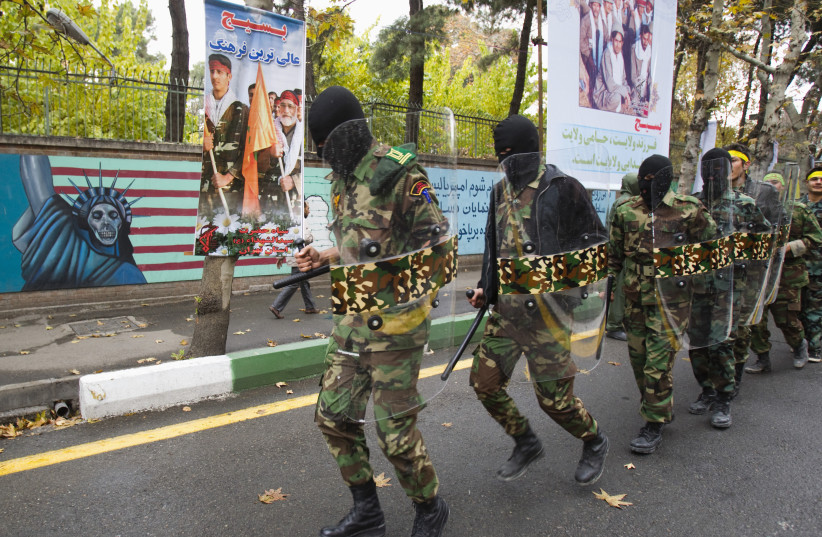A special bulletin prepared by media experts for IRGC commander-in-chief Hossein Salami noted concerns by Iranian officials that the Basij paramilitary organization is too weak to stop the protests and that too strict indictments were being issued against protesters, according to a document leaked by the Black Reward hacktivist group on Wednesday.
According to the Black Reward group, the bulletins were periodically prepared under the supervision of Abbas Darwish Tawangar, the Deputy Director of Fars News Agency. The leak comes amid a series of documents and recordings retrieved from the Fars News Agency's databases by the hacktivist group.
The first section of the bulletin regard "hearsay" concerning Iranian Supreme Leader Ali Khamenei, with the supreme leader reportedly expressing concerns that the media was lagging in responding to the protests across Iran. "We are at war and one of the tools of this war is the media."
Khamenei also referred to the protests in Zahedan, stating that Maulvi Abdul Hamid, the Sunni Friday Imam of Zahedan, should be "tolerated for the time being" and that "there should be no action to make him angry again and call Sunnis to the street." The supreme leader added that the plan concerning Hamid is "to gradually remove his ability."
The bulletin added that Gholam-Ali Haddad-Adel, a member of the Expediency Discernment Council, told Khamenei that "the Basij has weakened and has no ability to mobilize."

The leaked document cited "some experts" as saying that there is an "accumulation of doubts and uncertainty" among the "revolutionary forces." Additionally, the Fars officials noted that the protest movement "considers the greatest achievement of the recent riots to be the loss of people's fear of the military and police forces."
Iranian officials express concern government unorganized against protests
Iranian Parliament Speaker Mohammad Baqer Qalibaf was recorded as telling Khamenei that the "government does not have a plan and goal in the works and they cannot make a decision, they are confused." The supreme leader agreed that the government was lacking a plan and slow.
Khamenei also expressed opposition to the large number of protesters being indicted on the charge of "waging war against God" with the bulletin noting that the justice system stopped issuing such indictments after an order he issued.
Fars blames reformists for encouraging protests
The Fars bulletin additionally blamed the reformist movement in Iran for trying to use the protests as a way to gain political power, stating "it is necessary to pay special attention to the relationship of this political movement with the people and to emphasize the discrediting of the claim that this movement is popular."
In recent weeks, the Fars News Agency has published a series of articles accusing the reformist movement of spreading Western ideology in Iran, including one calling media affiliated with the reformist movement "the protector of American interests in Iran."
The bulletin also recommended that officials work to create a "real belief" among the people that foreign influence is behind the ongoing protests, repeatedly stressing the importance of preventing a view that the protests are based on internal enmity with the Iranian regime.
At least 448 Iranians have been killed in the ongoing protests throughout Iran, according to the Iran Human Rights organization.
